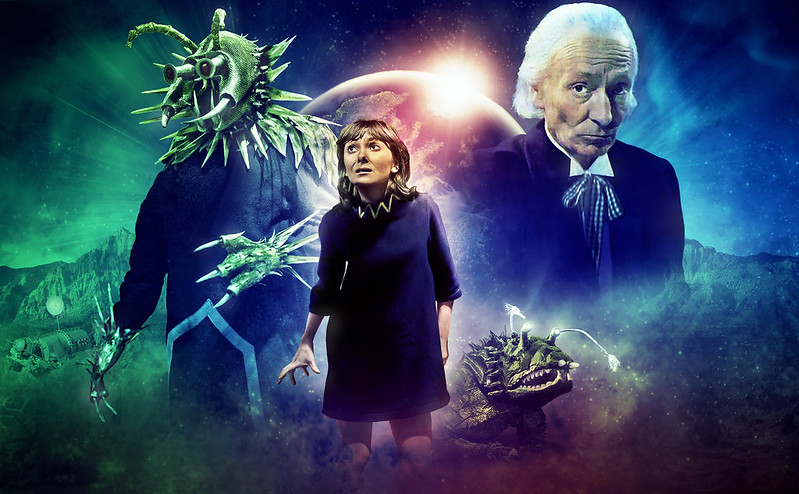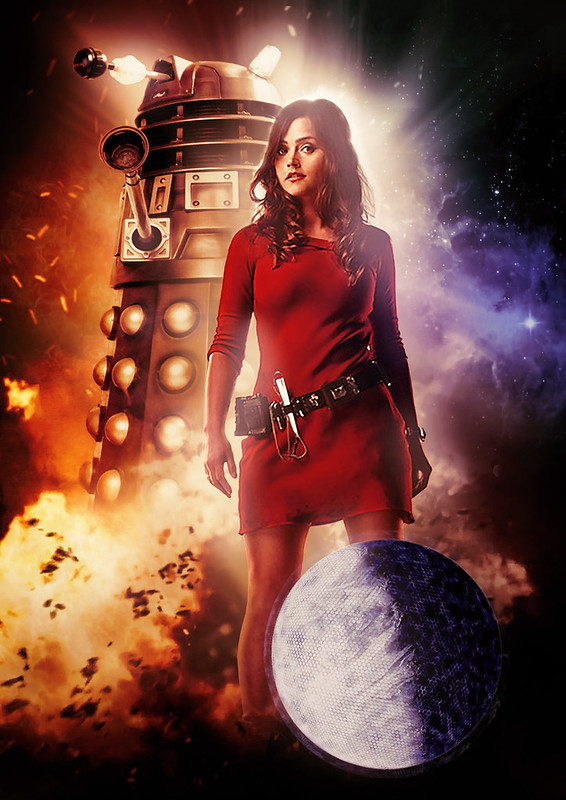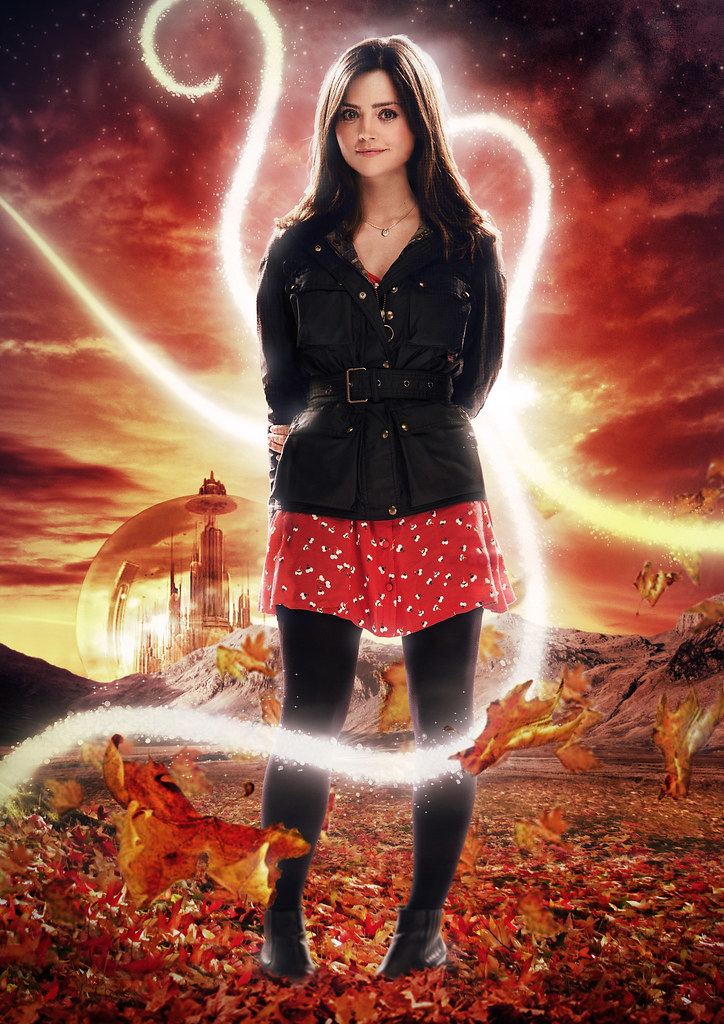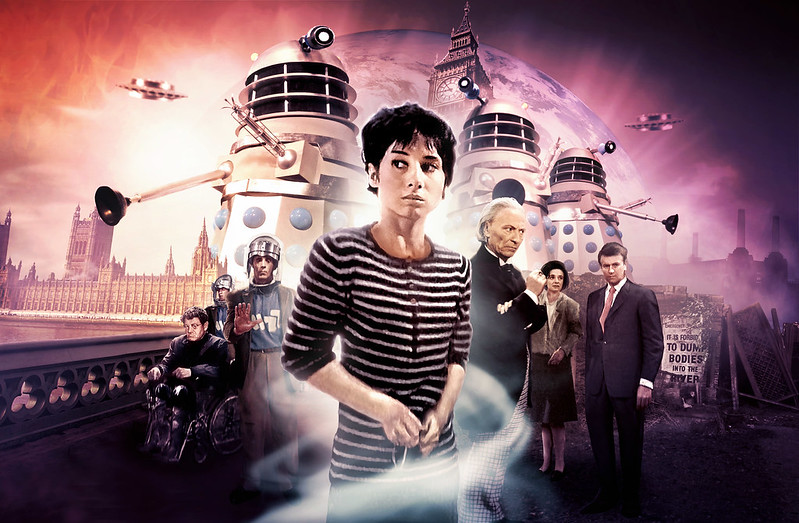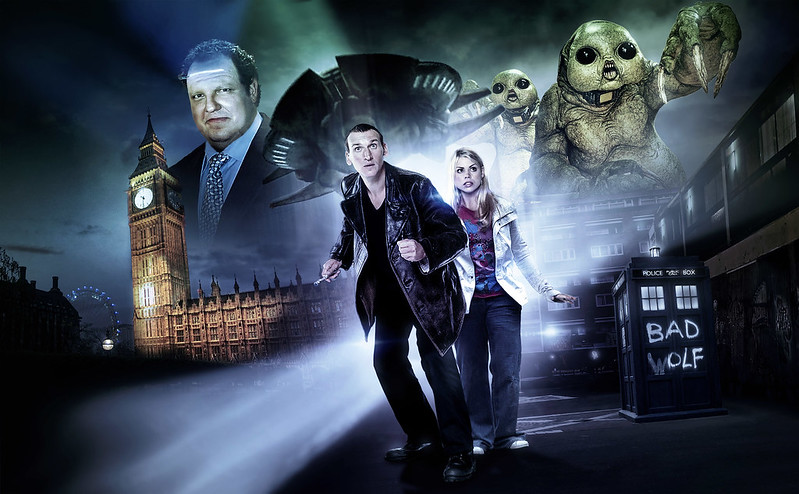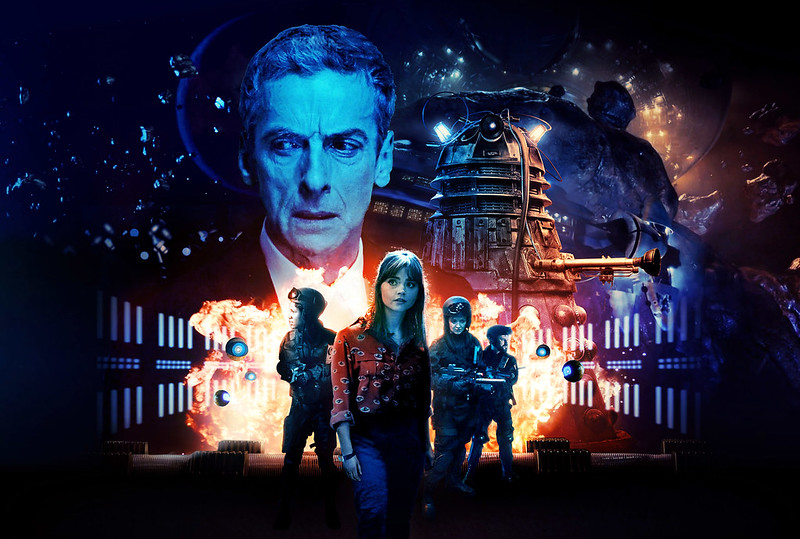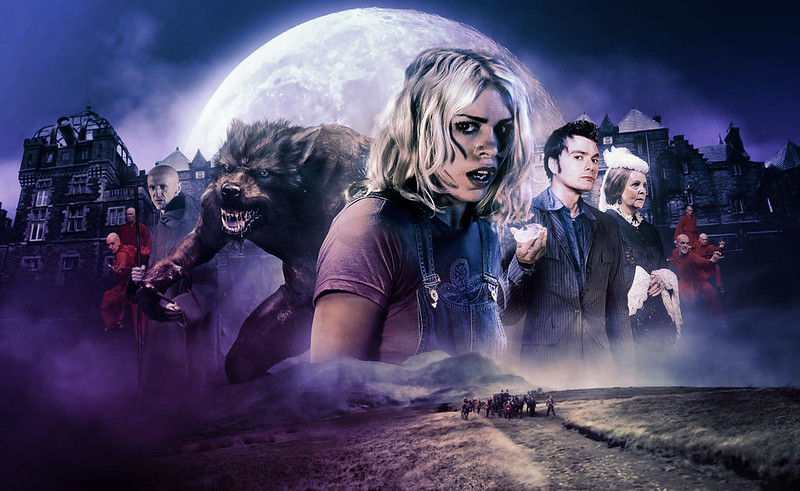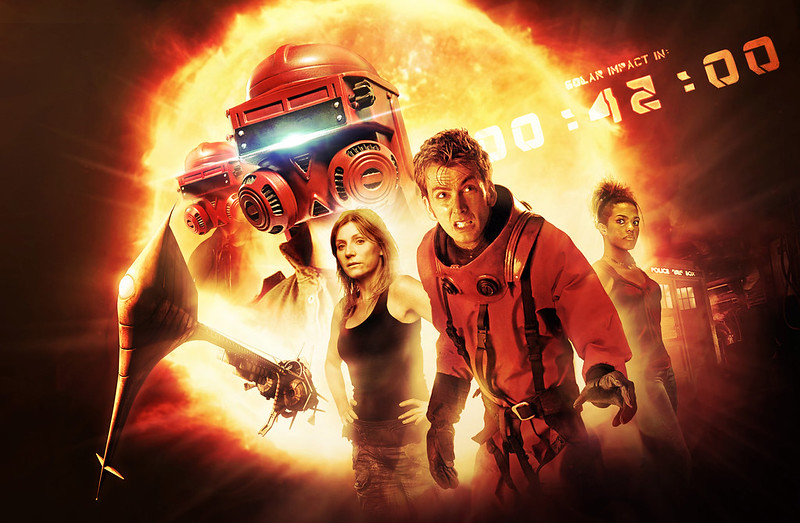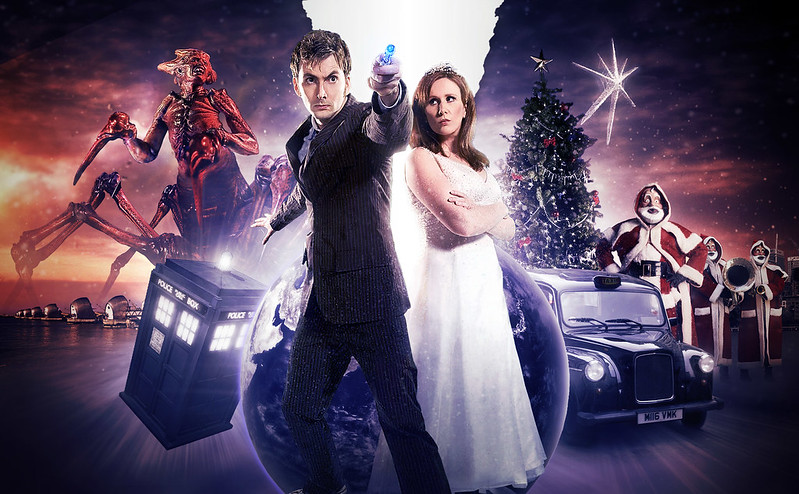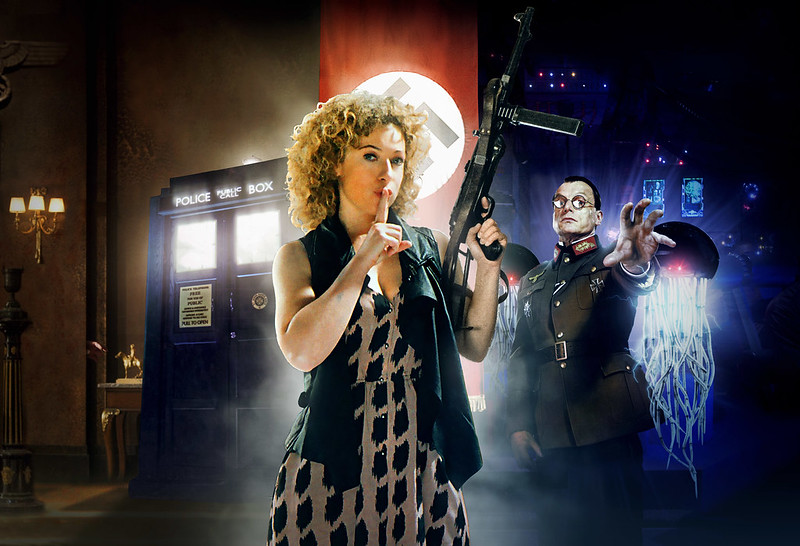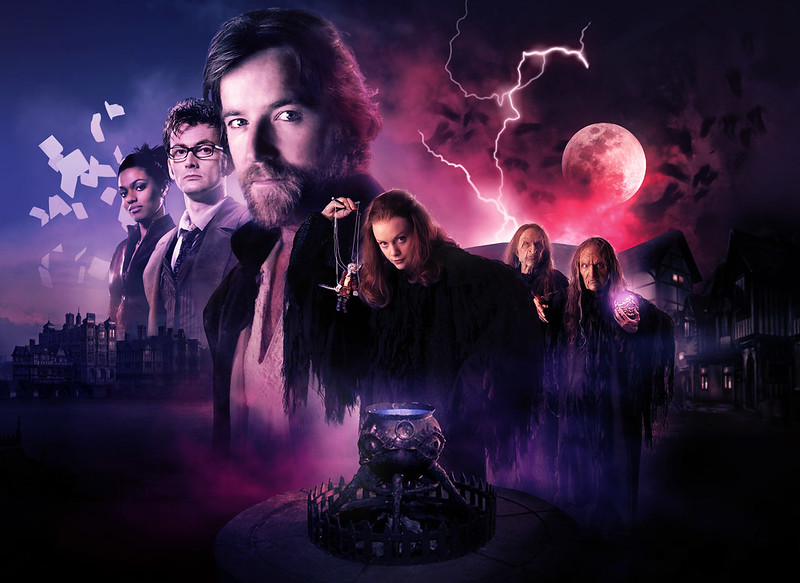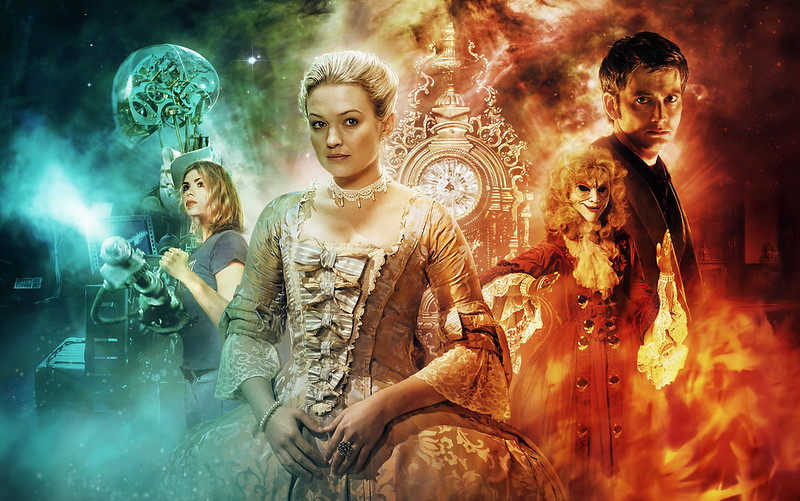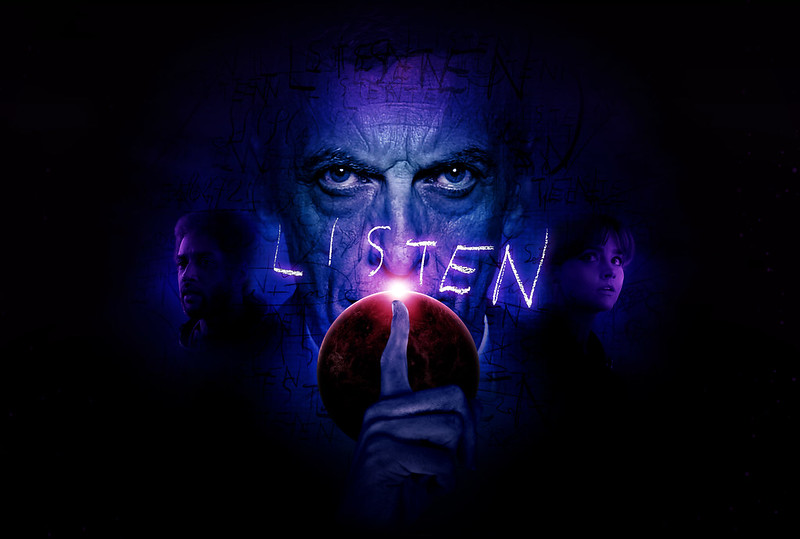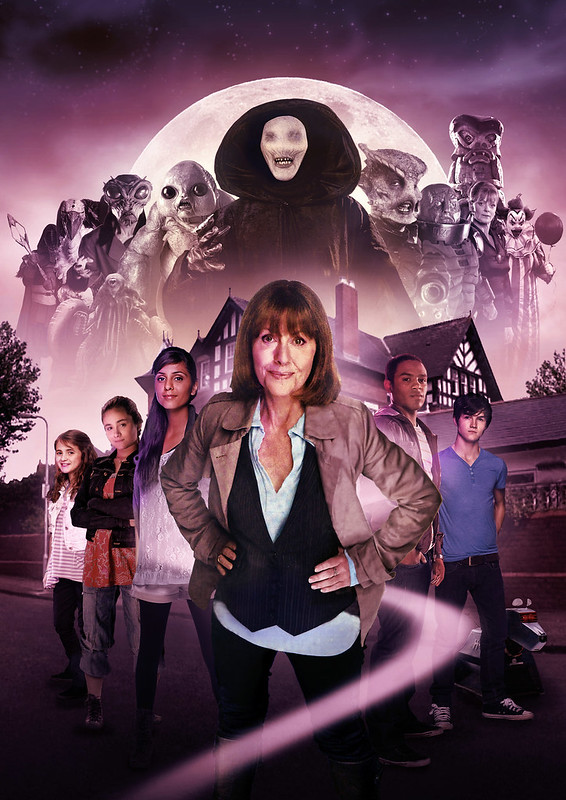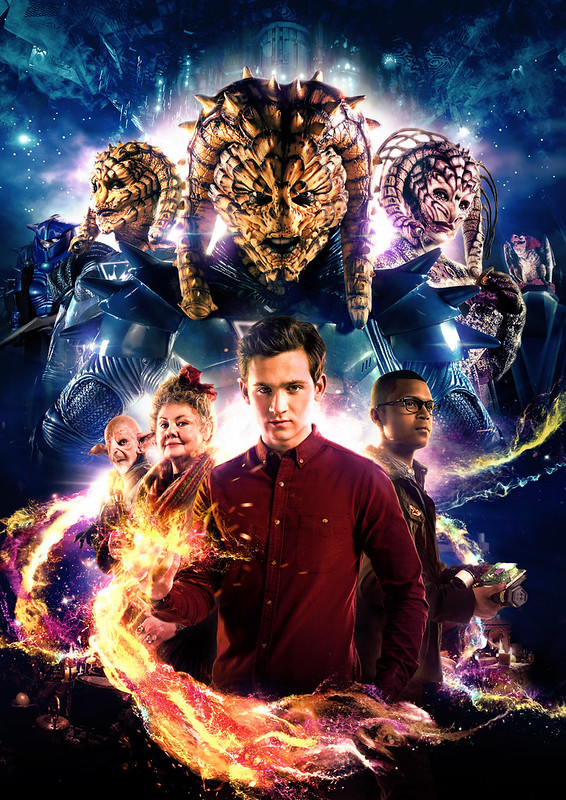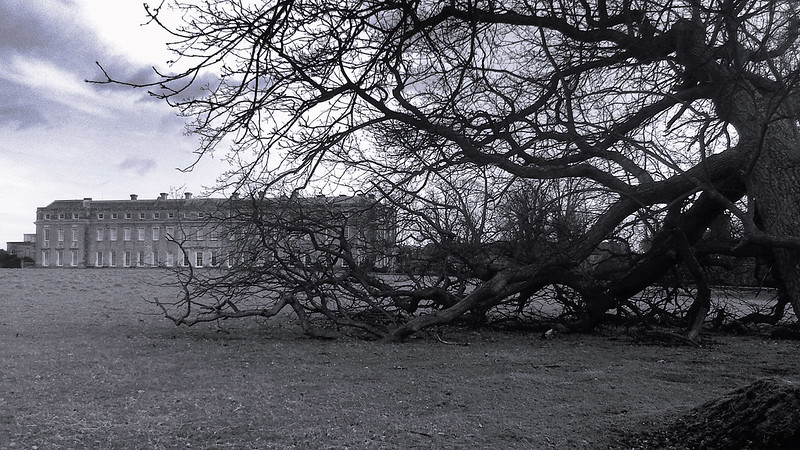Doctor Who and the Deep Breath - and Peter Capaldi's debut, and I really enjoyed it. A Victorian setting with some familiar faces, tackling big old themes of the show in a fresh and dramatic way, and all pointing towards a bright new future.
(I'm saying 'almost a review', because I'm not trying to cover everything. Rather, here's some bits that jumped out at me when I watched it, or have been floating around in my head ever since.)

Peter Capaldi first... well, he's amazing. He has tons to do - high comedy and high drama - he plays a million different facets of the same character. And he does it all brilliantly. There's not much more I can say.
Then there's Clara. I've heard other, cleverer, people talk about how this is the show through the companion's eyes again, not the Doctor's as it has been with Matt Smith. This probably explains why suddenly we're noticing Clara having character - not that she never had one, but that the Doctor was the one who did everything. Here, she's reacting to plot of the Doctor changing, coming to terms with who this man is, and being angry with him - it's wonderful to watch. She holds her own for long scenes where the Doctor is missing (and Jenna Coleman can definitely act it) especially in some very dramatic scenes with Madame Vastra and the villain, the Half-Faced Man. The first one is pure drama especially, verbal sparring between two, an argument we can see both sides and relate to both characters. It feels almost unique in the show to have
the companion being in such a strong scene, and the Doctor absent. I loved it. Clara suddenly shoots up to the pantheon of great Doctor Who companions, as similar moments with Rose and Sarah Jane spring to mind.
Viewers of the last series, however, might have noticed a change. Madame Vastra got on quite happily with Clara in the previous two or three times that they met (if they met at all in some scenes), although she was a little bit frosty and protective in
The Snowmen. Clara's met many incarnations of the Doctor onscreen beforehand, so shouldn't be quite so stressed that her Doctor has changed (that's another kettle of fish), and her defensive comments about how she's never been swayed by the Doctor's youthful looks hasn't really been explored either way. And has Clara been such a control freak? There's hints - she fits in her TARDIS travels around her own weekly schedule, she masterminds the Doctor to accompany her to the family Christmas dinner - but it's never been stated outright as in this episode. I admire that they're finally giving her a proper character now, and giving her things to do, and I admire that they're sticking to the same character brief from before, even if I've probably only read it in interviews. I'm just not sure the qualities we're banged over the head with here are especially realistic, or make a good character on their own.
But still, the second is notable - it seems like we've had few of these scenes lately, not least because there's been a lack of proper villains. Clara can be strong
and terrified
and still showing her character. The robotic monsters work extremely well too: it's that mix of tangible real world scary things (clockwork sounds, robotic zombie people), cool design, and a villain who's played absolutely straight and absolutely perfectly. With the cherry on the cake of a Doctor Who monster - something that can be imitated in the playground. That's not to say they have what it takes to become a regular popular feature, just that they work especially well here, as a particularly big, well oiled cog in a wider machine - and cleverly (very Steven Moffat) reflecting the Doctor's character and the core themes of change and renewal and humanity.
Let's not forget it's the first story of the new Doctor - one of those rare, pivotal 'regeneration stories' - and many of the hallmarks are here, even if you have to look harder for some of them. There's the worry that the Doctor's regeneration might have 'gone wrong', with scenes of him breaking normal rules of etiquette (always more so than in later episodes when he 'calms down'). The companion doesn't quite know what has happened, and there's familiar characters to reassure us it's the same show, including a first - a cameo acting appearance from the previous man telling us to trust him. It reminded me of an old address to camera from Patrick Troughton: "this time I'm just a little bit more frightening than last time. If your mummy or daddy are scared, just hold their hand." Of course, this came at the end of the story, after plenty of scares and bewildering moments, so it was less of a warning, more of a straightforward cameo.
And then there's the - arguably - traditional moment, just after the plot kicks in, where the Doctor as we know him is back with us. He might be suited up already, or he might not. But, like here, we finally see the glimmer of the new character away from the post-regenerative madness. In
The Christmas Invasion, David Tennant finally woke and stepped out of the TARDIS to face the Sycorax. In
The Eleventh Hour, the moment came earlier, when Matt Smith was asking Amy to trust him, or perhaps when he was investigating the crack in her wall. In
Deep Breath, Peter Capaldi rips his face off to reveal the Doctor underneath. That's where I see the Doctor stepping in, even with the T-Rex and the lovely restaurant business beforehand - he's finally found some clothes that don't smell, he's facing the villain for the first time, and he definitely hasn't abandoned Clara. Even then, as this leads into an excellent face-off (pun intended) upstairs against the Half Faced Man, we're not sure of who the Doctor is, of how far he can go. We're still not really sure after the credits have rolled. But we trust him - and we certainly trust in Peter Capaldi.
If the familiar elements are hard to find, I put that down to the new tone and style, orchestrated by Ben Wheatley. It would be more straightforward to play this story as one of the last few years, chewing up the meaty character scenes into bitesize quips. It's a brave opening gambit - the show will be more thoughtful, more weighty (rather than any of the now meaningless terms like 'dark', or even more meaningless here, 'adult'). Events will have consequences and take time to recover from, supporting characters will have their own motivations, the companion can be terrified of the monster and still stand up to them. Nothing here in the direction, either, is flashy for being flashy. I've seen relatively little of Ben Wheatley's output - only A Field in England - but it doesn't surprise me that there's few moments of extravagance in editing or the music or the effects. Not that his flourishes aren't there, but they feel natural and earned. It's the anti-Sherlock, from the writer of Sherlock. No wonder it all feels different.
But I'd also add that with this drawn out, more serious style came an underlying sense of bewilderment expressed by me and many other viewers. (AI: 82, say no more) I've nothing against the second half of the story which is traditional as anything and pure Doctor Who. And it's not the pacing - which wasn't particular bad or slow even when the plot hadn't kicked in yet. No, I find fault with the opening sequence, in the same way that
Cold War left me, well, cold. In that story and this, everything's introduced in a blur, with the Doctor and Clara arriving in the middle of the action, so we and they don't quite know what's going on. Then there's jumps in time - Clara or the Doctor falling unconscious - a general lack of exposition/characters being filled in off-screen, and finally the whole episode takes a shift into a completely different style to what you were expecting (in
Cold War, the Ice Warrior coming out of its casing). If the opening left me breathless, that change bewildered me.
You could make the case that it's about the format - forty five minutes is a short amount of time when having to introduce things - but
Deep Breath has that extra time. And it's hardly an action packed opening either, people just talk! It's a storytelling problem, even if it could have been ironed out in editing. That first scene is a great scene, but I only noticed how great it was on the
second viewing, when I had the right expectations of how it would play out. The trouble is with Doctor Who, more so than most dramas, a good chunk of the audience will only watch the show once, on a Saturday night, some of them too young to take in all of it. It needs to be
accessible, and not just in continuity, something I think this lacks slightly. (for an opening sequence I think works, well, take your pick - though
The Christmas Invasion works because it's short, and
The Runaway Bride works because it picks up on crazy things shown months ago, and establishes them proper. No sudden dinosaurs here!) And an audience that is bewildered to begin with, with no Doctor to latch onto (and when he is there, he's behaving very oddly), could find themselves lost before the familiar, safer elements kick in, before Matt Smith reminds the viewers that this man is still him. It could have been their intention to alienate the audience a little, not making them comfortable with the new show (let alone the new Doctor), but I think a more accessible, or perhaps traditional, first half would have made this perfect.


